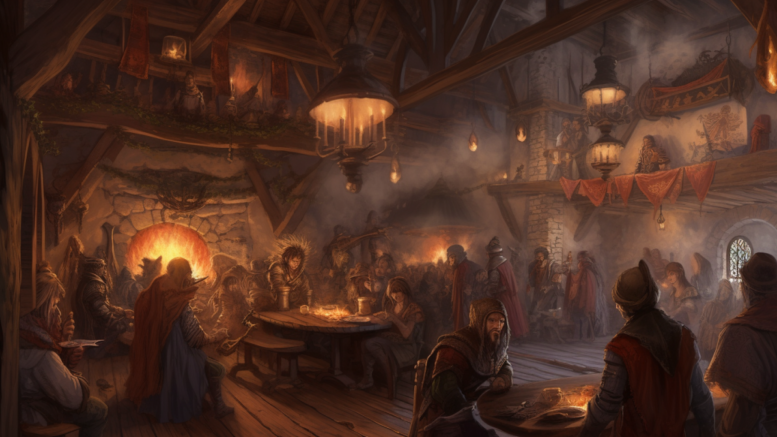As a Dungeon Master, one of the most important aspects of your job is to create a world that your players can immerse themselves in. While battles and puzzles are important, the heart of any great RPG is the role-playing experience. Interactions with non-player characters (NPCs) can make or break a game, so it’s essential that you take steps to improve this aspect of your game. Here are some tips and guidance for how a Dungeon Master can improve the role-playing experience in their game, including interactions with NPCs.
- Flesh out your NPCs
One of the most common mistakes DMs make is creating NPCs that are flat and uninteresting. NPCs are just as important to the world as the player characters, so it’s essential that you put just as much effort into creating them. Take some time to think about each NPC’s backstory, personality, and motivations. Give them unique quirks and mannerisms that make them stand out from one another. By creating NPCs that are fully fleshed out, you’ll give your players more to work with and help them feel more connected to the world you’ve created.
- Encourage your players to engage with NPCs
Players can sometimes be hesitant to engage with NPCs, especially if they’re not sure what information or plot points the NPC might reveal. As the DM, it’s your job to encourage your players to interact with your NPCs. You can do this by making your NPCs interesting and memorable, as well as by giving them information that’s essential to the plot. You can also have NPCs approach the players directly or have them play a more active role in the story.
- Use accents and voices
Using different accents and voices for your NPCs can make them feel more real and immersive. You don’t have to be a professional voice actor to pull this off – even small changes in pitch or tone can make a big difference. If you’re not comfortable doing different accents, you can still give your NPCs unique speaking patterns or phrases that help distinguish them from one another.
- Give NPCs agency
NPCs shouldn’t just exist to give the players information or quests. They should have their own goals and motivations, and they should act on them in ways that make sense. This can create a more dynamic world and make the players feel like they’re part of something bigger than themselves. For example, an NPC might have their own quest that they’re pursuing, and the players can choose to help them or not.
- Allow for player choice
When players interact with NPCs, they should feel like their choices matter. If players make choices that affect the NPCs, it’s important that the consequences of those choices are felt throughout the game. For example, if a player chooses to befriend an NPC, that NPC might offer them a discount on goods or provide them with information that’s useful later in the game.
By following these tips and guidance, you can create a more immersive and engaging role-playing experience for your players. Remember that the NPCs you create are just as important as the player characters, and by giving them agency and allowing for player choice, you’ll create a world that feels alive and dynamic.

Be the first to comment on "The Art of Role-Playing: How to Make NPCs Come Alive"